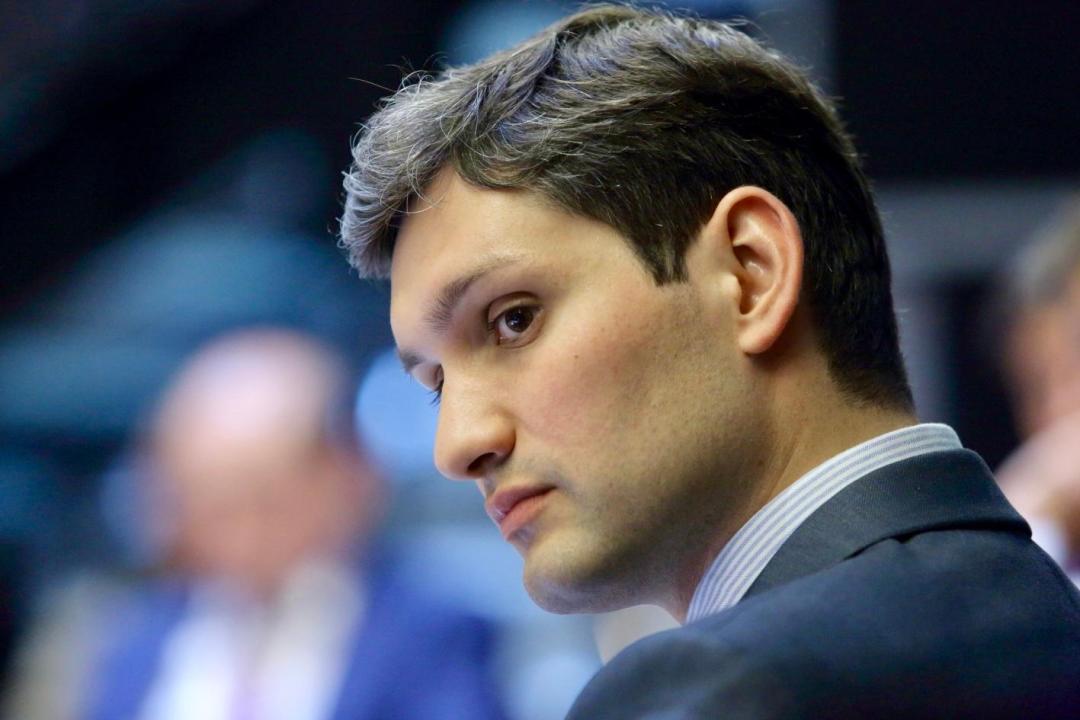
Political analyst: China is the only power that will decide the future of the Caucasus

The territories of Abkhazia and South Ossetia split off from Georgia in the 1990’s and the Russo-Georgian War of 2008 led to a flare up of tensions between the territories and Tbilisi once again. Dr. Michael Eric Lambert holds a doctoral degree in history and international relations from the Sorbonne in Paris and is the director of the French Black Sea Institute. In a conversation with Caucasus Watch, he explains the current Situation and developing Trends in the separatist regions.
What impact did the defeat in the Russo-Georgian War of 2008 had on the expectations of Georgia’s political class, as well as on the people of Georgia, in regards to South Ossetia and Abkhazia to this date?
The terminology of "defeat" or "conflict” and “war" between Russia and Georgia does not seem accurate in such context. Instead, we should speak of a conflict between Abkhazia and South Ossetia with Georgia, in which these two separatist regions (or partially recognized states) have benefited from the Russian military and diplomatic support.
The impossibility for Georgia to recover its two territories is an obvious military failure that attests the weakness of Georgia’s hard power in comparison with Russia - without any surprise. However, Georgia has not received any large-scale military support from the United States or any European Union member states during the conflict, which is a sign of diplomatic isolation, contrary to what the Georgian elites thought.
The "defeat" of Georgia is no more militarily than diplomatic in the sense that the country has not been able to gain support by its perceived international partners.
Did the opinion of Abkhazians and South Ossetians on independence or annexation change since they broke off from Georgia in the 90’s? If so, how did it change?
Both Abkhazia and South Ossetia want independence to preserve their identity and to develop. Abkhazia is aware of the gradual disappearance of its identity (paganism, dances, food) and its language (written in Cyrillic but originally in the Latin alphabet) in favor of a growing Russian influence. However, the situation would be identical if it was a part of contemporary Georgia.
Russia is protecting Abkhazia while using it on a military level, while Georgia does not manage to consider the idea that Abkhazia is different from a cultural perspective. This refusal to rethink dynamics is causing the Caucasus region to have no economic future and to be influenced by the outside world when it could play a role on an international scale.
With regards to South Ossetia, the pattern is even more complex to the extent that North-and South Ossetia wish to stay together but are not able to do so. In the north, Russia rejects the idea of North Ossetian independence while in the South the Georgians reject the idea of an independent South Ossetian. Rather than being a country, the Ossetians are forced to live by agreeing to the expectations of the country that can offer them the most advantage (for the moment) that is to say Russia.
The fundamental difference between the 90's and today is the striking fact that no one believes in Russia or Georgia anymore to secure their future. It appears objectively to the experts of this region, that China is the only power that will decide the future of the Caucasus. The People’s Republic of China is the only player that innovates geopolitically and economically with a relevant strategy and approaches things generally on a more complex philosophical level.
Are there still relevant economic ties left between Georgia and both separatist entities? Could existing-or emerging ties decrease the risk of a future military conflict?
There are many opportunities in both territories - tourism, agriculture, wine, renewable energy, finance - but a deadlocked situation prevents everyone from moving forward.
Georgians are ready to favor national pride rather than pragmatic economic recovery, while the Russians put their military before the economy. Moscow is not able to extricate itself from the centralized scheme with an obvious lack of regionalism, due to the historical fear of eroding its power in the periphery.
In the case of Abkhazia and South Ossetia, the latter two do not succeed in adopting relevant strategies. There is a lack of investment in key sectors and a misallocation of wealth. Overall, there is a geopolitical atrophy with a lack of vision and the recurrence of the idea of “the West vs. Russia”, whereas a scheme like the Caucasus Union would be much more relevant.
The risk of conflict will decrease with the influence of an external player, other than those who are already there. A new player would stabilize the Caucasus to ensure the sustainability of its investments. However, the locales elites remain the major issue and prefer to speak of patriotism and war rather than technical subjects. It is always easier to have a debate that is based on emotion rather than on intellectual excellence with plans for the future. That is why the change will come from the outside and not from inside the Caucasus.
How dependent are Abkhazia and South Ossetia on Russian economic support?
Economic exchanges are mostly informal. Contrary to official reports, the biggest trading partner of Abkhazia is Turkey, ahead of Russia. In South Ossetia the economy is relying on the North Ossetians and therefore on Russia.
The two territories could perfectly achieve budget autonomy and live without Russia but peace would have to be guaranteed. Unfortunately, the war is expensive and without the support of Moscow it is therefore unthinkable for them to survive economically because their military budgets and their forces cannot be redirected to the civilian sector.
We hear a lot about the gradual shifting of border posts in regards to South Ossetia, where do you think this is going and is a similar trend developing in Abkhazia?
North-and South Ossetians want to live together but Russia is slowing the process because it allows putting pressure on Tbilisi.
In Abkhazia, the territory wants full autonomy but the lack of budget forces them to consider giving, without real intention, a growing authority to the Russian "border guards".
Some analysts say that if Russia is going to revert to military action again in order to promote its national interest, the two separatist regions would be the most likely targets to go for. Do you think this is accurate?
This analysis is accurate as much as in regards to Syria in the Middle East and to Central Asia when it comes to issues of terrorism and separatist tendencies.
How did the relations between Russia and Georgia change since the war in 2008?
The Eurasian Union is now a parameter to be taken into account. Georgia no longer believes in its European integration or in NATO - these claims are used for electoral purposes. The presence of separatists obstructs any future in this matter.
Compared to 2008, we can see the growing Chinese presence, which will now supplant the EU and Russia economically and mark the beginning of a broader Chinese influence in the Caucasus. Russia is therefore waiting and is fully aware it will not be relevant in the post-Soviet space anymore and cannot compete with China. It is important to remember, that in the Chinese perspective both Georgia and Russia are small countries considering the gigantism of Beijing with its 1.4 billion inhabitants and being the world’s leading economic power as well as the second biggest military power in the world.
How much does the conflict over Abkhazia and South Ossetia influence Tbilisi’s ambitions with regards to Western integration? How much do the conflicts influence the approach of Western states and institutions in talks with Georgia?
Georgia cannot become a member of NATO or the European Union because the separatism and its economic condition prevent Tbilisi from fulfilling what is seen as the general requirements.
NATO is experiencing tensions between Europe and the US. The European Union does not yet know what its future will be and it tries to preserve the Eastern Partnership project (EaP) but with full knowledge, that it cannot lead to a new enlargement. In the meanwhile, the United States is refocusing on Asia.
Interviewed by Philip Roehrs-Weist
See Also


Irina Mamulashvili: Electoral Interference is a Playbook, not a Recipe

Giorgi Gakharia: The EU Should Engage Georgia Despite Its Democratic Backsliding

Peace or Capitulation? Shahverdyan on Armenia-Azerbaijan Agreement and the Nagorno-Karabakh Crisis

Ali Mousavi Khalkhali: Iran Will Avoid Conflict in the Caucasus

